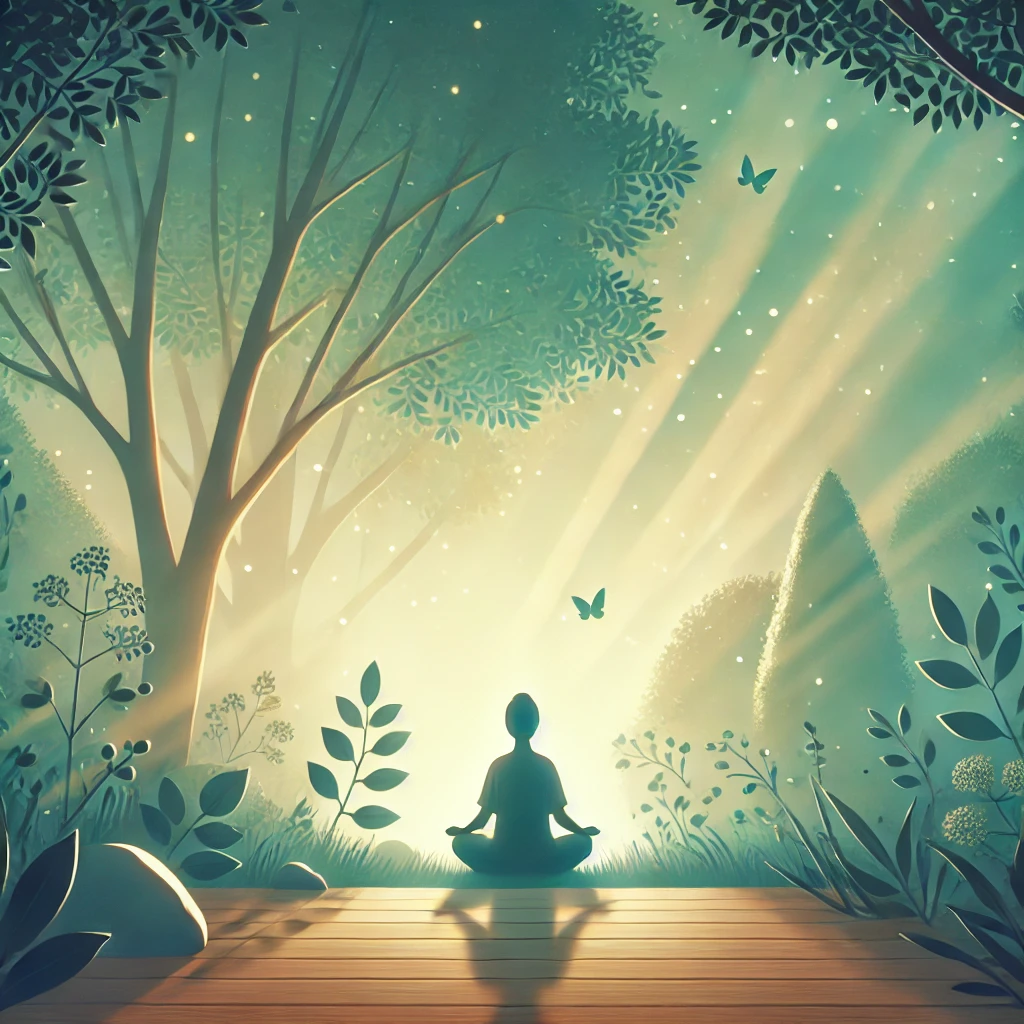How Practicing Gratitude Can Strengthen Bonds and Enhance Happiness
Introduction
Gratitude is more than just saying “thank you.” It’s a powerful emotional practice that can transform how we view the world and interact with the people around us. Recent research has shown that gratitude can have a profound impact on personal relationships, deepening connections, fostering trust, and improving overall life satisfaction. This article explores how practicing gratitude can strengthen personal bonds and lead to greater happiness.
What is Gratitude?
Gratitude is the acknowledgment of the goodness in our lives. It involves recognizing the positive aspects of life, whether it’s a kind gesture from a friend, the support of a partner, or simply appreciating the beauty of a sunny day. More importantly, gratitude often extends beyond personal acknowledgment and is expressed through actions or words toward others, fostering a sense of mutual appreciation.
The Role of Gratitude in Personal Relationships
1. Gratitude Strengthens Emotional Bonds
In personal relationships, showing appreciation can strengthen emotional connections. When we express gratitude to others, we acknowledge the value they bring into our lives, making them feel seen, respected, and appreciated. A study by The Journal of Positive Psychology in 2015 found that couples who regularly expressed gratitude towards each other had higher relationship satisfaction and felt more emotionally connected.
People who feel appreciated in relationships are more likely to reciprocate kindness and affection, creating a positive feedback loop of love and support. By practicing gratitude regularly, we nurture a stronger emotional bond with those we care about, making the relationship more resilient during challenging times.
2. Gratitude Enhances Trust and Reduces Conflict
One of the main reasons gratitude improves relationships is its ability to foster trust. When people feel valued and appreciated, they tend to trust the other person more deeply. This trust makes it easier to navigate conflicts or misunderstandings, as both parties are more likely to approach disagreements with compassion and patience.
A 2014 study conducted by researchers at The University of California, Berkeley, found that couples who practiced gratitude regularly were less likely to engage in destructive conflict and more likely to resolve disagreements amicably. Gratitude shifts the focus from negative emotions to positive ones, making it easier to see the good in others and approach challenges constructively.
How Gratitude Improves Happiness in Relationships
1. Increased Relationship Satisfaction
Gratitude has a direct impact on relationship satisfaction. A survey by Gallup in 2020 revealed that individuals who regularly expressed gratitude towards their partners were 20% more likely to report higher levels of relationship satisfaction. Gratitude fosters a positive emotional environment, reducing the tendency to dwell on irritations or negative behaviors.
Couples who express gratitude often report feeling closer to each other, enjoying a stronger sense of companionship and mutual respect. This sense of appreciation builds a foundation for long-term relationship success and happiness.
2. Emotional Well-being and Positive Outlook
When we practice gratitude, we are more likely to focus on the positive aspects of life rather than the negatives. This shift in perspective has a significant impact on overall emotional well-being. Gratitude encourages optimism, reduces stress, and increases feelings of joy. According to a 2017 report by Psychology Today, people who practice gratitude regularly experience 25% fewer symptoms of depression and anxiety.
In relationships, this emotional well-being is contagious. A person with a positive outlook tends to bring more joy and positivity to their interactions, creating a happier and more harmonious relationship dynamic. Partners, friends, and family members often respond to this positive energy with increased affection and support.
Practical Ways to Practice Gratitude in Relationships
Gratitude is a skill that can be developed and strengthened over time. Here are some practical ways to incorporate gratitude into your daily interactions:
1. Express Appreciation Regularly
One of the simplest ways to practice gratitude is by verbally expressing appreciation. Saying « thank you » for both big and small acts of kindness can make the other person feel valued. Whether it’s thanking your partner for cooking dinner or appreciating a friend for listening, regular expressions of gratitude help reinforce the bond.
2. Keep a Gratitude Journal
Journaling is a powerful way to reflect on the positive aspects of your relationships. Write down three things you’re grateful for each day, focusing specifically on the people in your life. Over time, this practice will help you become more attuned to the positive contributions of others and foster a deeper sense of gratitude.
3. Practice Active Listening
Gratitude isn’t just about expressing thanks; it’s also about showing appreciation through actions. One way to do this is by practicing active listening. Giving someone your full attention during a conversation shows that you value their thoughts and feelings. This practice builds trust and strengthens emotional bonds.
4. Give Thoughtful Gestures
Small, thoughtful gestures can have a big impact on a relationship. Acts of kindness, such as surprising a friend with their favorite coffee or writing a heartfelt note, show that you appreciate them. These gestures can serve as physical expressions of gratitude and help reinforce emotional connections.
The Science Behind Gratitude and Relationship Satisfaction
Gratitude has been the subject of extensive psychological research, with many studies demonstrating its powerful effects on relationships. In a 2012 study by The Greater Good Science Center at the University of California, researchers found that gratitude not only improves relationship satisfaction but also enhances emotional intimacy and trust. Participants who practiced gratitude in their relationships reported feeling closer to their partners and more satisfied overall.
Further research from The Journal of Family Psychology (2019) demonstrated that gratitude was a significant predictor of relationship longevity. Couples who expressed gratitude were more likely to stay together over time, as their positive interactions outweighed the negative ones.
The Ripple Effect of Gratitude
Gratitude doesn’t just improve the immediate relationships in your life; it also has a ripple effect. When we practice gratitude, we inspire others to do the same. This creates a positive social dynamic, where appreciation and kindness spread beyond our personal relationships into our broader communities.
For example, expressing gratitude to a coworker may encourage them to show appreciation toward someone else, creating a more positive work environment. Similarly, when children observe their parents practicing gratitude, they are more likely to adopt this behavior in their own interactions, leading to stronger family bonds.
The Challenges of Practicing Gratitude in Modern Life
In today’s fast-paced world, it’s easy to overlook gratitude. Busy schedules, stress, and constant distractions can make it difficult to pause and reflect on the positive aspects of our relationships. However, making a conscious effort to practice gratitude can counteract these challenges.
A 2021 report by Harvard Health Publishing emphasized that even a small, daily practice of gratitude can have lasting benefits for both mental health and relationship satisfaction. It may take time to build a habit of gratitude, but the rewards—stronger relationships, improved emotional well-being, and increased happiness—are well worth the effort.
Conclusion
Gratitude is a simple yet powerful practice that can transform your personal relationships and enhance your overall happiness. By expressing appreciation, practicing empathy, and focusing on the positive aspects of your relationships, you can build stronger emotional bonds, foster trust, and improve relationship satisfaction.
As research has shown, gratitude is not just a nice-to-have trait; it’s essential for maintaining healthy, fulfilling relationships. Whether it’s with a romantic partner, friend, or family member, gratitude acts as the glue that holds relationships together, creating a lasting foundation of love, trust, and mutual respect.
References
- The Journal of Positive Psychology (2015). « Gratitude and Relationship Satisfaction: Findings from a Longitudinal Study. »
- University of California, Berkeley (2014). « Gratitude and Conflict Resolution in Romantic Relationships. »
- Gallup (2020). « The Link Between Gratitude and Relationship Happiness. »
- Psychology Today (2017). « Gratitude and Emotional Well-being: An In-depth Analysis. »
- Harvard Health Publishing (2021). « Gratitude and Its Impact on Mental Health and Relationships. »
- The Greater Good Science Center (2012). « Gratitude: The Science Behind Relationship Success. »
- The Journal of Family Psychology (2019). « The Role of Gratitude in Long-term Relationship Satisfaction. »

